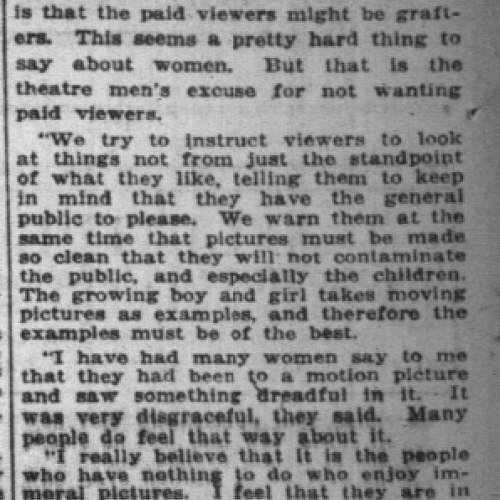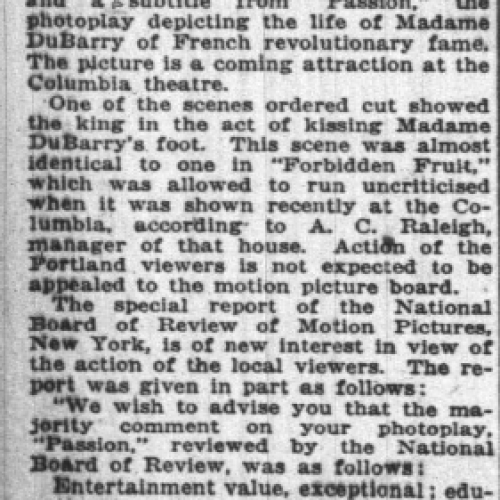Upon doing more research on film censorship occurring in Portland in the early 1900s, I learned that there was a Portland board of motion pictures censor. Viewers of the Portland board of motion pictures censor had the authority to order scenes and subtitles from publicly released films to be removed. According to an article from The Oregon Daily Journal in March 1921, the film Passion was ordered to remove three scenes and one subtitle from its film, which is focused on Madame DuBarry, a French revolutionary. The first scene that was ordered to be removed consisted of a king kissing Madame DuBarry's foot. This was extremely controversial because there was a very similar scene shown from film Forbidden Fruit, which was allowed to run without any issues at all. I found this to be very wild because the censorship board doesn't have a specific guideline that all films abide by. Instead, it seems that some films are being forced to be censored while others do not. What I find even more bizarre is that the scene of a king kissing a foot to be censored especially when there was nothing sexually explicit. How does a kiss (not even on the lips) end up getting censored?
I decided to do further research on the Portland board of motion pictures censor and learn more about the purpose behind the censorship board. As secretary of the Portland board of motion censors, Mrs. E.B. Colwell was voicing her concern that board has not been doing a very effective job and many of the pictures shown to the public should have been completely removed. What is mind-blowing is that this article was published a month after Passion was ordered to remove those three scenes. It surprises that Colwell thinks the board is going too soft on the pictures and they should be completely removing the films instead.
As I did more research, I learned that the viewers who were helping censor films were warned that "pictures must be made so clean that they will not contaminate the public, and especially the children. The growing boy and girl takes moving pictures as examples, and therefore the examples must be of the best" (The Oregon Daily Journal). From this statement, I am led to believe that censorship board's purpose was to protect the younger audience from being exposed to indecent films that would supposedly hurt their development. The more I learn about this censorship board, the more obsolete I believe it to be - especially because "kissing a foot" is seen as dangerous to the public. The statements show me that the censorship board seems to be using personal biases to determine what's right and what's wrong - without research or any statistics. It seems to be purely from guesswork.

